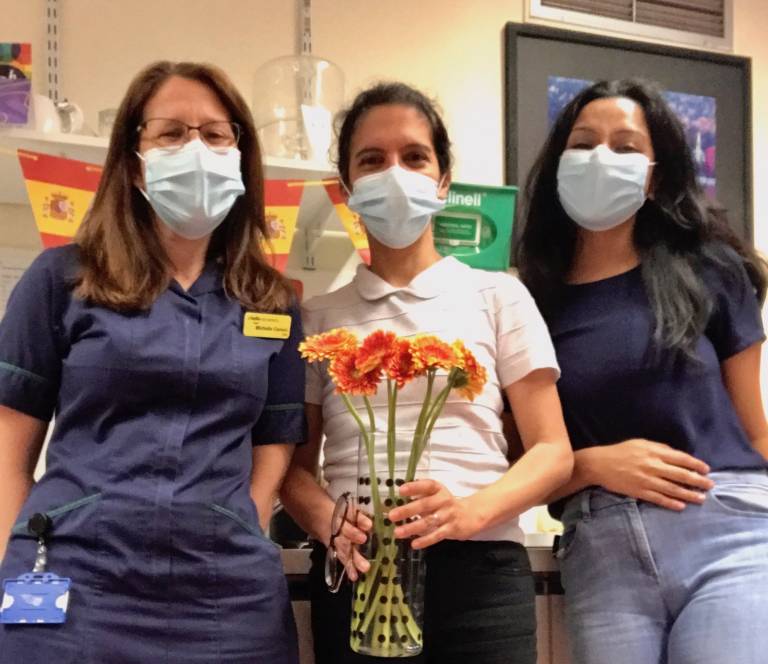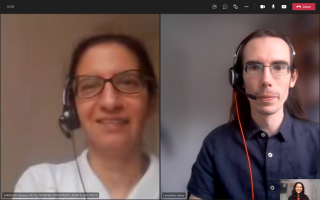Student blog: Aditi's experience at Royal National Orthopaedic Hospital
18 August 2021
Aditi Holey (UCL Biochemical Engineering) is an undergraduate student enrolled in a UCL Institute of Healthcare Engineering and UCL Engineering scheme allowing engineers to spend time embedded and learning within clinical settings. Here she tells us more.

I had never imagined myself working in a hospital setting during my engineering course, but I am so grateful that I spent the last eight weeks at RNOH. The brief time I was in the theatres was remarkable. Seeing engineering used in real-time to save lives gave me a profound appreciation for the engineering that goes into healthcare (and there is so much of it!) Observing the end-users (the doctors, nurses, and patients) first-hand, reflecting on the successes of the devices bridged the gap between designing a product as an engineer and seeing it in use to save lives in medicine.

My supervisors, Dr Roxaneh Zarnegar (RNOH consultant and UCL associate professor) and Dr Henry Lancashire (lecturer in Active Implantable Devices at UCL Biomedical Engineering), were incredible. They taught me so much about the field and research and they always provided unmatched support through every step of the learning curve. Through them, I met some fantastic people who gave unique perspectives on healthcare. Some were specialists in different areas; Dr Michelle Carson, for example, taught me about spinal column surgeries and the devices that provided stimulation to reduce chronic pain. One particularly eye-opening takeaway was realizing the amount of waste produced using disposable devices and their extensive packaging for maintaining sterility. It is something that I pay much more attention to now in the design of healthcare instruments.
The internship focused on understanding the engineering innovations behind the devices used to intubate patients (which allows them to breathe after they are anaesthetized.) From day one, I observed several intubations in operating theatres and learned first-hand from anaesthetists how they used the different intubation aids. In parallel, my supervisors provided me with insightful literature, including reviews, articles, and book chapters to help me understand the field from an engineering perspective. The initial weeks were dedicated to defining the scope of the research, followed by conducting a formal literature search with the help of UCL’s library services. Once all the relevant papers were found and read, I completed the review writing process in the last few weeks.
To all engineering students – especially those in fields closely related to health care – this is truly a one-of-a-kind experience that I urge you to undertake.
The eight weeks fly by, and at the end of them, you will find yourself inspired like never before. Especially during a pandemic, seeing the principles you learn in lectures being applied to create tools to ensure someone is able to breathe is really encouraging.
 Close
Close

